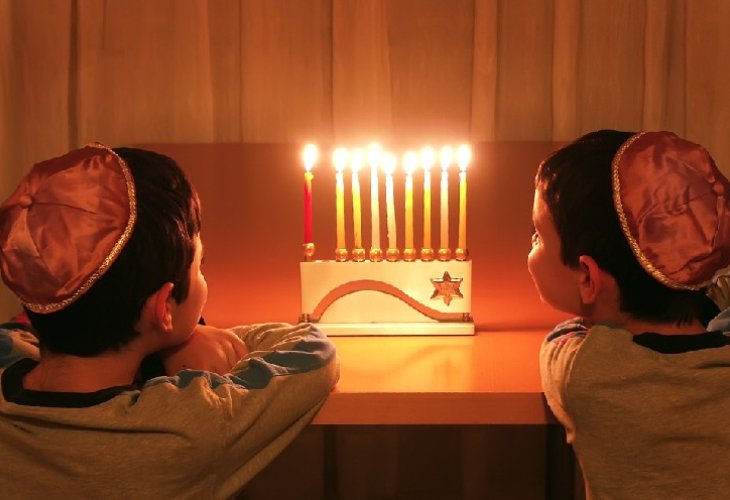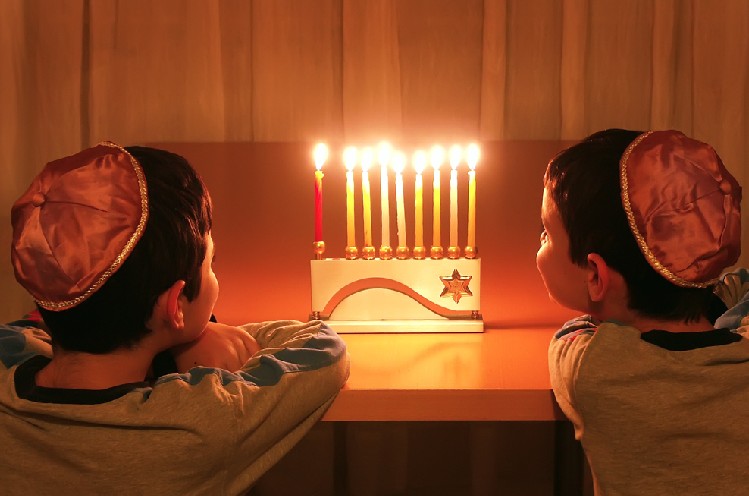Jewish Law
Frequent and Infrequent: When to Light the Chanukah Menorah on Shabbat Eve?
Navigating the Proper Order of Candle Lighting on Shabbat Eve for Maximum Spiritual Benefit
- Rabbi Shai Amar
- |Updated

1. On Shabbat eve, it is proper to light the Chanukah candle first and then the Shabbat candle. This follows the approach of Rav Yehudai Gaon in Sefer Halachot Gedolot, who ruled that it's forbidden to light Chanukah candles after Shabbat candles because the acceptance of Shabbat depends on lighting the candles. (Although the Shulchan Aruch in section 273 did not rule this way regarding Shabbat candles, he still ruled that Chanukah candles come first because even though we have the rule 'frequent and infrequent - the frequent comes first,' which would suggest lighting Shabbat candles first, we should avoid entering into a dispute among early authorities regarding whether accepting Shabbat depends on lighting candles. Additionally, the mitzvah of Chanukah candles is beloved because of the publicizing of the miracle, so it's appropriate to prioritize it).
2. If a woman mistakenly lit the Shabbat candle first - she can light the Chanukah candle afterward, since according to Maran, the Shulchan Aruch, accepting Shabbat does not depend on lighting candles. All the more so, the man of the house is permitted to light the Chanukah candle after his wife lit Shabbat candles, because even if the woman accepted Shabbat with her lighting, this does not obligate the other household members. (All the above applies to Sephardim, however Ashkenazim who follow the Rama and the opinion of Bahag that accepting Shabbat depends on lighting the candle - an Ashkenazi woman who mistakenly lit Shabbat candles cannot light Chanukah candles herself).
Here one must note that permission to light Chanukah candles even after lighting Shabbat candles only applies if one lit Shabbat candles within half an hour before sunset, in which case one doesn't accept Shabbat through the lighting. But if one lit more than half an hour before sunset - the sanctity of Shabbat takes effect, and one is forbidden from doing work. Even a stipulation that one doesn't wish to accept Shabbat won't help, and one may not light Chanukah candles. Instead, one should ask a household member who hasn't accepted Shabbat to light, or ask a neighbor to light the Chanukah candle on their behalf. (Sources: Shulchan Aruch 263:10. Shulchan Aruch ibid, 4, Shulchan Aruch HaRav section 263, Chazon Ovadia ibid page 176, Sefer B'itah Achishenah Moadim 1 by Rabbi Yaakov Yosef zt"l page 153).

3. The reason for distinguishing between lighting Shabbat candles half an hour or more before sunset is because the Sages prohibited lighting Shabbat candles too early, as it's not evident that one is lighting in honor of Shabbat. Only if one lights from plag hamincha (1¼ hours before sunset) and accepts Shabbat upon oneself, making it evident that one is lighting for Shabbat, is one permitted to bless and light. Therefore, one who lights Shabbat candles early has the sanctity of Shabbat descend upon them and may not light Chanukah candles, but can only fulfill the mitzvah of lighting Chanukah candles through an agent.
4. On Shabbat eve, it is good to pray Mincha before lighting Chanukah candles, provided that the prayer is with a congregation. But if one cannot find a minyan - one should pray Mincha with the congregation in the synagogue after lighting Chanukah candles at home.
5. The menorah is forbidden to be moved on Shabbat even after it has gone out. Some have advised placing a valuable ring on the menorah before Shabbat begins and thereby being able to move it, and stipulating before Shabbat that one may move it after it goes out.
Rabbi Shai Amar is a Rabbi in the Halacha department of Hidabroot
Questions for the Rabbi 054-8448909

